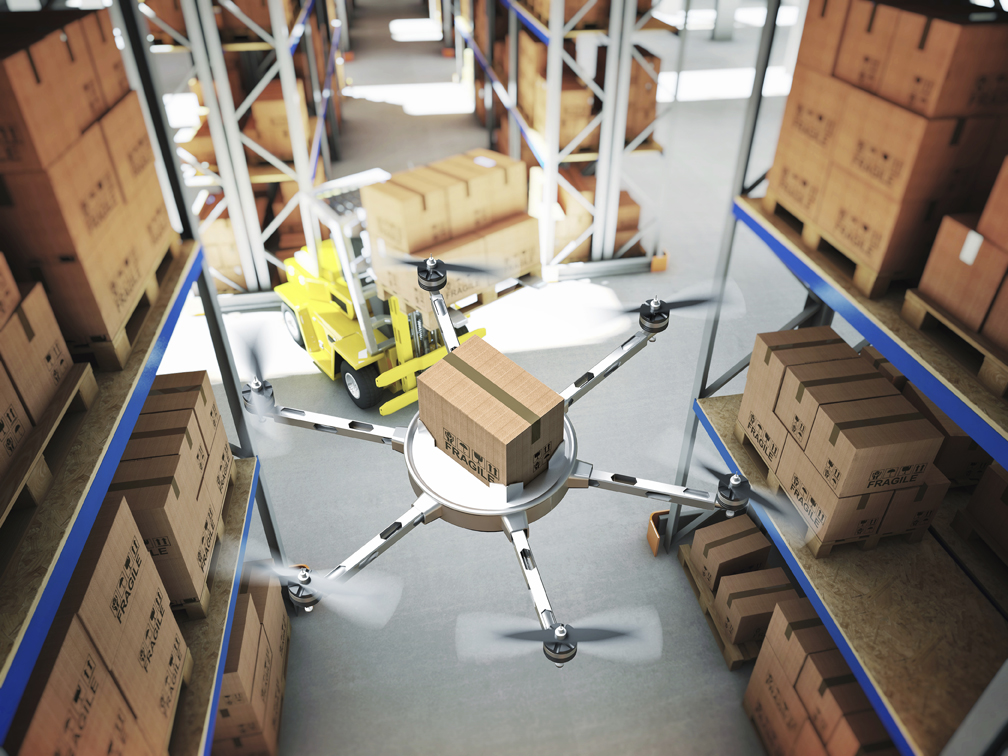The U.S. Roadmap for Material Handling & Logistics (Roadmap) identifies trust and technology as two key barriers to effective collaboration. At MHI we are building and testing a platform with trust embedded so that the value of sharing information and assisting others with their material handling and supply chain issues can be realized. The opportunities for MHI members to elevate ...
Read More »Technology
Blockchain Technology Provides Better Tracking and Accountability
Certified track and trace using blockchain or other emerging technologies—is there an actual case for this in the next three years? A growing number of experts are certainly bullish on the prospects, and there is movement among the manufacturing and retail industries to explore how to best leverage such technologies for use within their own supply chains. “Track and trace ...
Read More »Emerging Technologies Produce Business Benefits and Talent Challenges
Wearable technology, 3D printing, advanced robotics, real-time shipment tracking and integrated business planning tools are just a few examples of technologies that are in place now, or will be in the near future, throughout the supply chain. grows, and supply chain leaders are facing a major talent shortage. This lack of talent can slow innovation throughout the industry, according to ...
Read More »Utilizing Technology to Reduce Supply Chain
The use of radio frequency identification (RFID) and global positioning system (GPS) technologies is mitigating the risks within supply chains by minimizing financial losses due to downtime, reducing the chance for non-compliance with government regulations on product safety as well as corporate governance, and even protecting the physical safety of workers. But the use of such technologies to provide an ...
Read More »Auto ID and RFID
Moving a roll of cloth destined for military uniforms from manufacturer to warehouse to fabricator has been, until recently, a time-consuming, labor-intensive process. The introduction of automatic identification—specifically Radio Frequency Identification (RFID)—has transformed it. Manufacturing employees used to handwrite each cloth roll’s data onto manually attached tags. At the warehouse, employees would copy each roll’s information onto a sheet by ...
Read More »Mobile Technology
Mobile technologies are improving processes within each step of the supply chain—and expediting real-time communication for better visibility across the entire chain. An increasing number of manufacturers are outsourcing some or all of their supply chain management to third-party logistics providers, which are leveraging mobile technologies to report performance metrics—as well as potential problems—to their clients in real time, says ...
Read More »Wearable and Mobile Technologies
Supply chain management is getting an adrenaline shot in the arm with emerging wearable and mobile technologies. From smart glasses, to voice-directed hands-free wearable scanners, to real-time views of every touchpoint within the supply chain via mobile devices, manufacturers, distributors and their partners are experimenting with various technologies to expedite processes, improve worker safety and increase transparency within the supply ...
Read More »The Rise of Automation and Robotics in Supply Chains
On “Star Trek: The Next Generation,” Captain Jean-Luc Picard often pondered the week’s signature conundrum over a cup of comfort. “Tea. Earl Gray. Hot,” he’d say to the Replicator, and a moment later it would materialize. We’re not quite there just yet, but at this year’s Consumer Electronics Show in Las Vegas, we got one giant step closer with the ...
Read More »Disruptive Technology
Predictions about the future of logistics often include scenarios of driverless trucks loaded with goods cruising effortlessly down the highway and flying drones departing from warehouses to make last-mile deliveries of consumer goods. Will such visions become a reality? Despite anticipated benefits to automated driving and delivery systems, technological, legislative and other barriers could slow their adoption. Assisted not autonomous ...
Read More »The Power of the Cloud
Cloud computing has played a critical role in the improvement of supply chain management by supporting an enterprise’s efforts to share data with multiple partners across many different locations throughout the world. While the benefits of cloud computing include improved collaboration among supply chain partners, cost-effective use of staff resources and the ability to adapt to changing business needs quickly, ...
Read More » MHI Solutions Improving Supply Chain Performance
MHI Solutions Improving Supply Chain Performance










